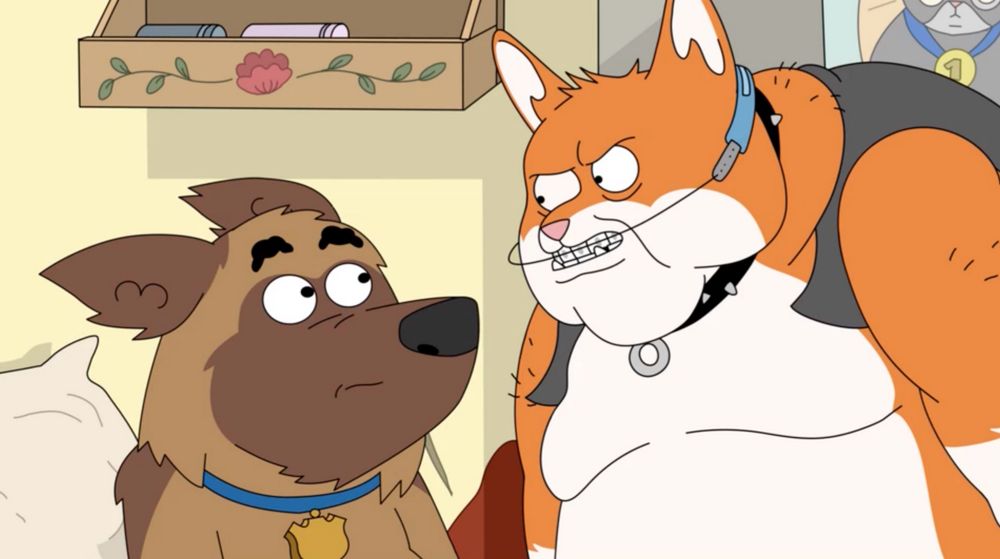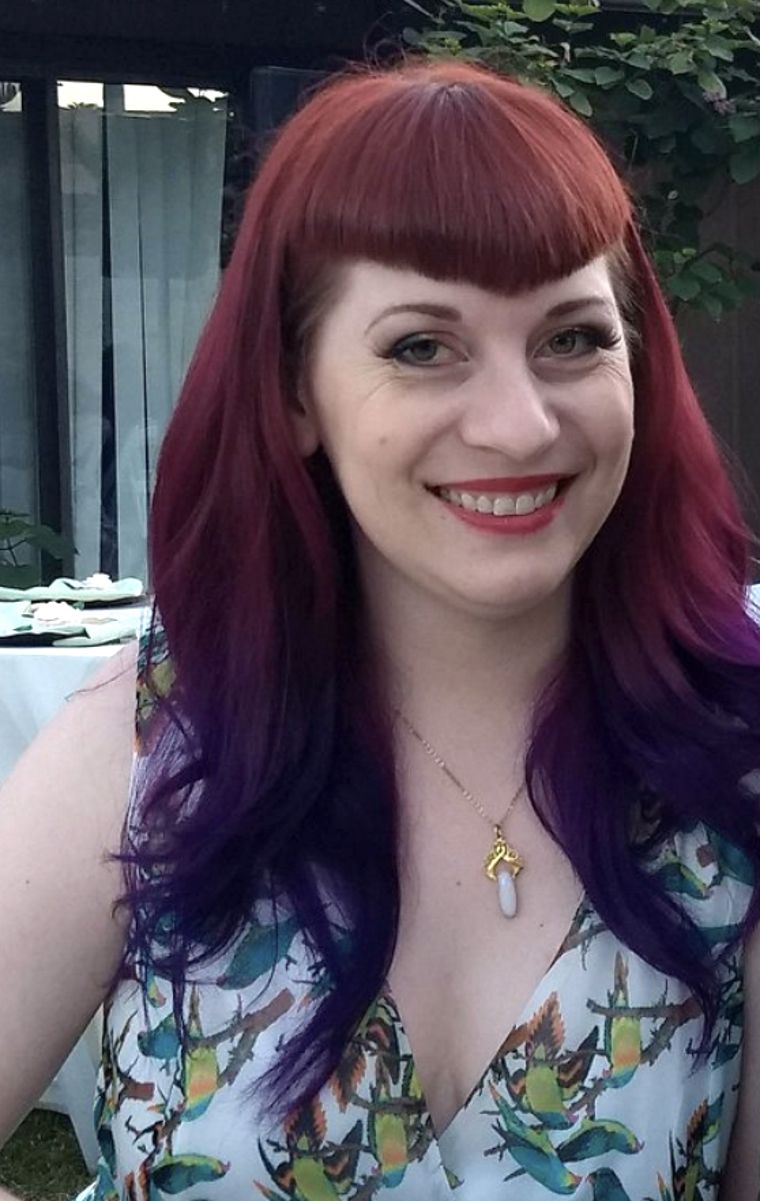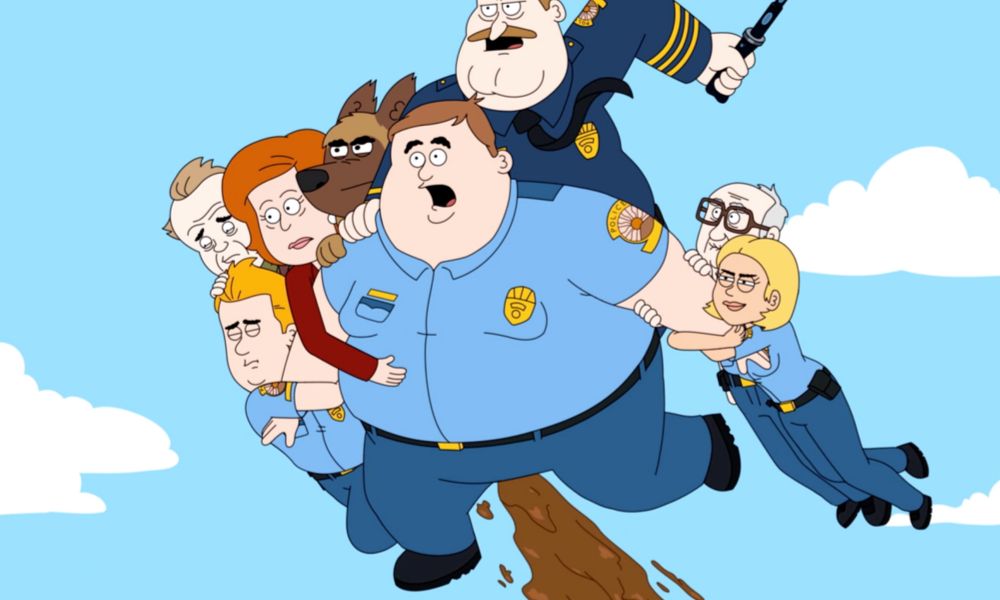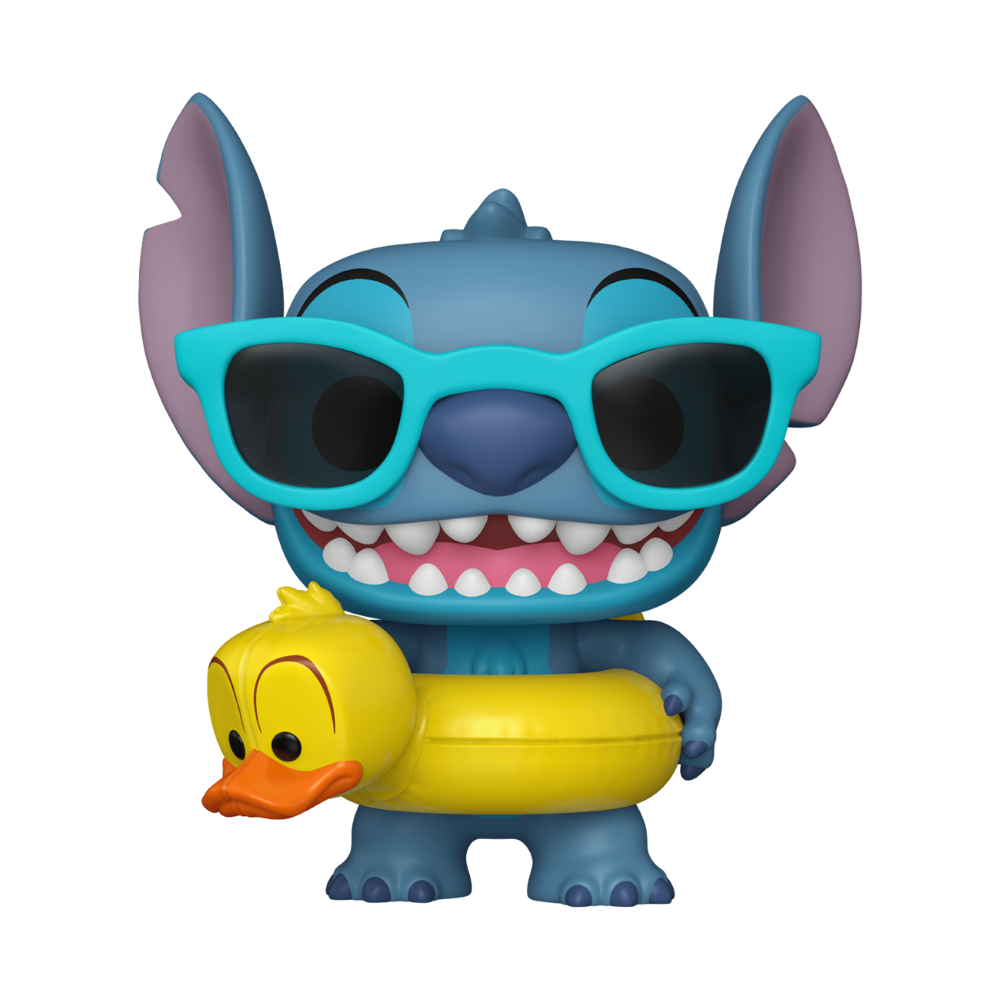Ashley Long has had quite an impressive career in the adult TV animation business. After starting out her career as a production assistant on FOX-TV’s American Dad!, she quickly moved up the ladder and began working as a storyboard revisionist on Family Guy, assistant director on The Awesomes, and director on Brickleberry, Legend of Chamberlain Heights and The Adventures of Kid Danger. Most recently, she’s been the supervising director of Paradise P.D. at Bento Box, which will begin its second season on March 6 on Netflix. Here is what she shared with us:
Animag: Congrats on the new season of Paradise P.D. Can you tell us how you got involved with the show?
Ashley Long: I’ve had a great working relationship with the show creators, Roger Black and Waco O’Guin, since I joined their other show Brickleberry in 2013. As a retakes director and then episodic director, I got to know them pretty well, and they trust that I understand their comedic and visual sensibilities. When Paradise P.D. got picked up, they naturally reached out to the last supervising director they’d had on Brickleberry. That previous supervisor was already settled elsewhere.
I knew I wanted this job, and could do a hell of a job, so I called the guys on the phone. I said something to the effect of, “I know this is really forward, and I don’t want to freak you out, but I really want to be your supervising Director. I can handle this if you give me the chance.” They did, and they tell me often how glad they are things turned out this way. Being forthright about your ambitions can make or break an opportunity.
What is it like being one of very few women to have supervised mature audience animated content?
I’ve had people ask me how I put up with the content. Friends see me as an articulate and vocal feminist and, on the surface, Paradise P.D. seems like it would be the opposite of all that. True, I don’t always love every joke we do, but as a whole I get what this show is trying to accomplish. We’re pushing buttons, and I’ve always been a button pusher. I was the willful kid raising objections and pointing out ironies. I was the teenager dying green streaks in my hair because that was a scary counter-culture thing to do in rural Illinois (back then, anyway).
The brash, unapologetic comedy resonates with me because it says, “Here I am. Like me or don’t like me. I’m good either way.” Most of the time we’re trying to make the audience laugh, but sometimes the goal is to make you cringe a little, too. Something people don’t expect of the show is that it does have some really clever social commentary making fun of misogynists and conservatives. I’m all for all of that!
How did you get your first job in the industry?
The hand-drawn animation market was pretty dry when I moved to L.A. I spent four months looking for work with resumes all over but no actionable bites. My resume had been sitting in a pile at the American Dad! offices for a while, when I had a chance encounter with a friend of the producer at a party. I told her how excited I was to be considered, and was hoping for an interview. She relayed that information, which in fact scored me that interview, which led to my first PA job in animation for the animatic department. The whole thing is a good example of “right place at the right time” mixed with being personable and taking a chance by asking for what I wanted!
You began your career on shows such as Family Guy and American Dad. What lessons did you learn from those shows?
My big takeaway was how important it is to set rules for a prime-time-style show. Someone new to TV boards might not pay careful attention to things like eyebrows and eyelids. They’re so small — how much can it matter? The answer is: a lot. Establishing rules for all the stuff that seems like minutiae – pupil direction, how teeth appear when gritted, whether cheeks affect the eye shape when someone smiles — provides consistency and ensures you’ll get back the animation that you wanted. When I saw a lack of consistency on shows I was a part of later, I applied a logic and set a standard to fix the problem. I’m very left-brained for an artist and love structure. I like to set clear parameters to keep most things in check, but allow room to be delighted when an artist breaks those parameters in an awesome way.
What are some of the biggest challenges of working in TV animation as a female director?
One of the biggest challenges I see women around me facing is being dismissed as less capable or less qualified to give input. The classic example of a woman saying an idea and nobody reacts, but then a dude repeats the idea and everyone applauds, is a very real thing. There’s also a surprising amount of woman-on-woman rivalry at some places, too, which is very frustrating.
Overcoming these obstacles in the workplace is further complicated by the fact that so many women are conditioned at an early age to be agreeable, even if it’s at their expense. You can retrain yourself out of this mindset but it takes a lot of self-awareness and effort. I’m really glad I was raised by parents who occupied leadership positions and were good public speakers, and who taught me to always be assertive. Someone who tries to dismiss me finds out very quickly that I don’t back down easily. That’s been a big asset in advocating for myself and my team.
What is the best way to promote parity and diversity in the workplace?
When fully staffed, Paradise had a 45% female crew on Seasons 1 and 2. That’s a really awesome number of ladies in a very unexpected place! My background supervisor and timing Supervisor are both outstanding women, and we’ve had two female directors as well. To be clear, it isn’t that I’m going out of my way to hire women. It’s just that I might be looking in places that other people aren’t. Finding people who have talent and drive, but who have been underestimated or overlooked in previous workplaces. Often times, these are women. I love mentoring those people who need it, or just giving a confidence boost to someone who is more experienced than I am, but who hasn’t always been treated as such.
We also promote diversity in the work itself. The best cop on our police force is the female officer, and we have a very smart episode that calls out the wage gap. My character designers, directors and board artists are all very conscientious about getting women and people of color into the episodes. PPD pokes fun at the very white, hick town of Paradise, and so you will see a lot of rednecks, but we mix that up wherever possible. Something as simple as making crowd shots diverse contributes to representation on screen.
What do you love most about your current job at Bento Box?
My crew on Paradise P.D. – and I’m not just saying that! Being a supervising director has given me the opportunity to shape the workflow and hire in a way that curates the type of environment I wished I had had on other shows. It’s important to me to have crew members who share my vision of a collaborative, productive and appreciative workplace. It feels great to have a core group of “ride or die” folks at my side no matter what an episode might bring. I love that I look forward to seeing my people on a Monday morning and that we can solve problems together across departments. Having the trust and support of my showrunners is huge, too. They always make me feel like I work with them, rather than just for them.
When did you first know you wanted to get into animation?
I don’t think there was ever a time I didn’t want to be “an artist,” though paleontologist and marine biologist were close seconds. Sometime in elementary school this aspiration turned into “cartoonist,” and then at around 10 years old when The Lion King came out it was like, ”Oh, animator is a job? I’ll do that!” My parents were all in. My mom found out what schools Disney recruited from and started sending away for college materials. Again, I’m just 10 years old at this time. They let me take all sorts of art classes outside of school. Looking back at it now, I think the importance of their support can’t be overstated and I know I was very lucky to have that.
What were some of your favorite animated shows/movies growing up?
I think every kid interested in animation probably has a period where Disney Feature is the end-all be-all. Aside from that, notable influences were Garfield and Friends, Batman: The Animated Series, The Nightmare Before Christmas, Rocko’s Modern Life, Daria. I think that Beavis and Butt-head Do America is quite an underrated movie. The Far Side comics are worth mentioning as an early influence on my sense of humor. My grandpa got me into those and I’d spend hours at his house flipping through books of those cartoons.
What kind of advice do you offer young women who are studying animation and want to end up in leadership positions in the industry?
The skills you bring to the table, your portfolio or your reel – these are important to have on point. Of equal importance is the presence you bring to a room. Make eye contact. Practice speaking in front of friends if you tend to be shy in meetings. Make space for yourself at the table. Body language matters. Make true friends who will last beyond the current show you’re on and don’t fall into the trap of woman-on-woman competition – there’s room for more than one! Presenting a sense of command and warmth is key to getting a crew to trust in you and follow you. An artist once told me I run “a tight ship, but a chill ship.” I take that as a very high compliment. That’s the kind of boss I’d want.
We’ve all seen the reports about the growing number of women working in the animation business. Do you think we are experiencing some significant improvements?
Equal pay can still be an issue some places, but I hope we’ll see that vanish as companies become aware of how bad the optics of that are in today’s entertainment community. I think we’re seeing more opportunities available to women as content creators have become aware of a market-driven need for female-driven shows. There are a lot of projects going on right now in animation in general, so I also think the need for all capable hands on deck may be opening doors that have been closed before.
However, we still don’t see a lot of women in leadership roles for properties that aren’t female centric. Women are more readily considered for shows about female superheroes, princesses, young women coming of age or shows for kids. We get the content that is considered harmless or assumed to be in our wheelhouse. One of the things I’m proudest of in supervising Paradise P.D. is that this isn’t a “girl” show and there’s nothing safe about it. I’m playing on the field with the boys and I’m ready to shock you.
Paradise P.D. begins its second season on Netflix on March 6.






 Win a Funko X Lilo & Stitch Prize Pack!
Win a Funko X Lilo & Stitch Prize Pack! 
